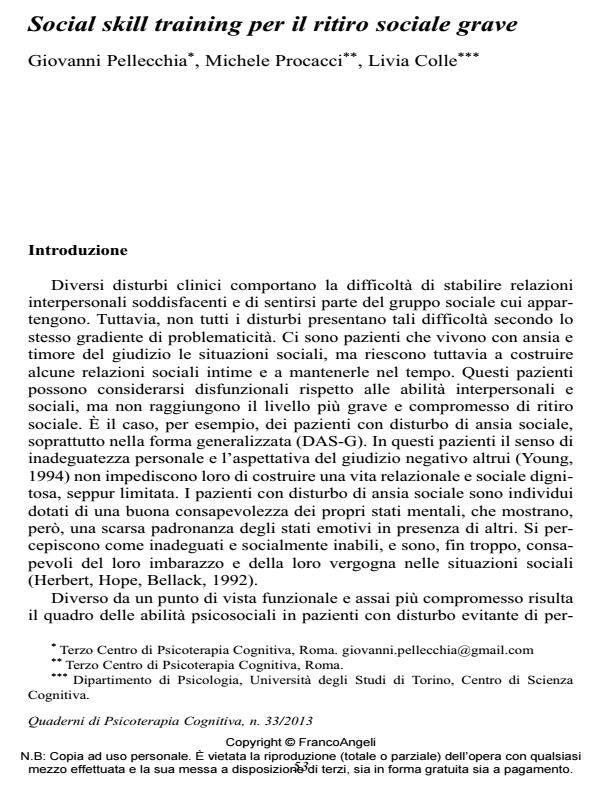Social skill training for severe social withdrawl
Journal title QUADERNI DI PSICOTERAPIA COGNITIVA
Author/s Giovanni Pellecchia, Michele Procacci, Livia Colle
Publishing Year 2013 Issue 2013/33
Language Italian Pages 12 P. 53-64 File size 121 KB
DOI 10.3280/QPC2013-033004
DOI is like a bar code for intellectual property: to have more infomation
click here
Below, you can see the article first page
If you want to buy this article in PDF format, you can do it, following the instructions to buy download credits

FrancoAngeli is member of Publishers International Linking Association, Inc (PILA), a not-for-profit association which run the CrossRef service enabling links to and from online scholarly content.
The paper describes the psychopathological features of different forms of social withdrawal, from social phobia to avoidant personality disorder (APD), highlighting the qualitative and functional differences between disorders and, therefore, the necessity of diversified interventions according to the specific form of social withdrawal. In particular, the paper aims to make a survey of the different protocols of social skills training (SST) currently available for social withdrawal, pointing out the limits of such interventions for patients with APD. Subsequently, a new SST protocol specially designed for patients with severe withdrawal is presented. The protocol is based on the APD psychopathological model proposed by the Third Center (Procacci et al., 2011), and it is focused on the specific cognitive and metacognitive dysfunctions at the base of severe social withdrawal.
Keywords: Interpersonal skills, metacognition, emotional recognition, social withdrawal, avoidant personality disorder.
Giovanni Pellecchia, Michele Procacci, Livia Colle, Social skill training per il ritiro sociale grave in "QUADERNI DI PSICOTERAPIA COGNITIVA" 33/2013, pp 53-64, DOI: 10.3280/QPC2013-033004